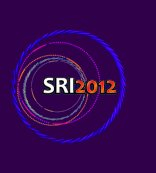Speaker
Dr
Federica Marone
(PSI)
Description
Synchrotron based X-ray tomographic microscopy (SRXTM) is a technique to unravel the 3D internal structure and composition of opaque samples in a non-destructive manner at the micrometer scale. Thanks to its versatility, it can be used to investigate a variety of specimens and dynamic processes, spanning a wide range of spatial, temporal and density resolutions as well as sample sizes. However, the versatility of the technique can be fully exploited only if the detector system is matched to the specific experiment. Detector requirements for SRXTM are discussed in the first part of the talk.
The TOMCAT beamline at the Swiss Light Source has established itself as a cutting edge hard X-ray tomographic microscopy endstation for experiments on a large variety of samples, such a new materials, biomedical tissues and rare fossils. Part of our research program focuses on ultra-fast tomographic microscopy to address a wide range of time resolved applications and in-situ experiments. The goal is the acquisition of full 3D datasets at sub-second temporal resolution in a continuous mode, currently not possible. In fact, ultrafast detectors available on the market can easily acquire more than 1000 fps and store the data in an on-board RAM. Data transfer from the internal RAM to an external storage system occurs however mostly at significantly lower rates (typically 40 MB/s). This rate mismatch strongly limits the phenomena that can be studied. Often only few seconds of a process can be captured: a compromise between data quality and acquisition length is mostly required. To overcome these limitations, we are developing a new customized high-speed data interface enabling transfer rates as high as 8 GB/s, which will be presented in the second part of the talk.
Author
Dr
Federica Marone
(PSI)
Co-authors
Mr
Elmar Schmid
(PSI)
Mr
Gerd Theidel
(PSI)
Mr
Goran Lovric
(PSI)
Mr
Heiner Billich
(PSI)
Dr
Helge Brands
(PSI)
Prof.
Marco Stampanoni
(PSI and Institute for Biomedical Engineering, ETH and University Zurich)
Dr
Rajmund Mokso
(PSI)
Mr
Tine Celcer
(PSI)

